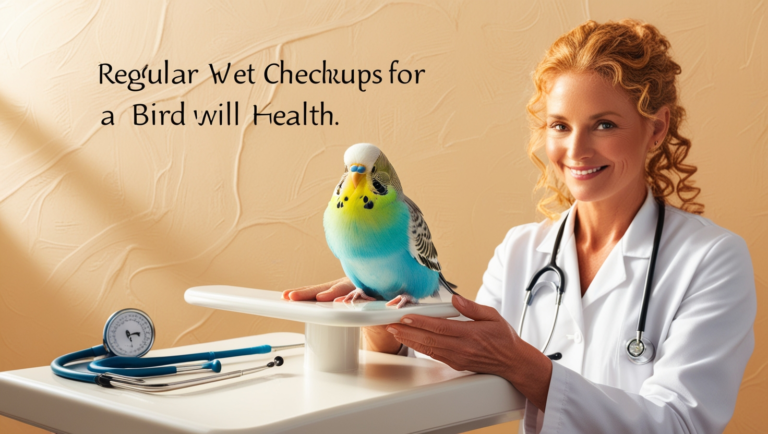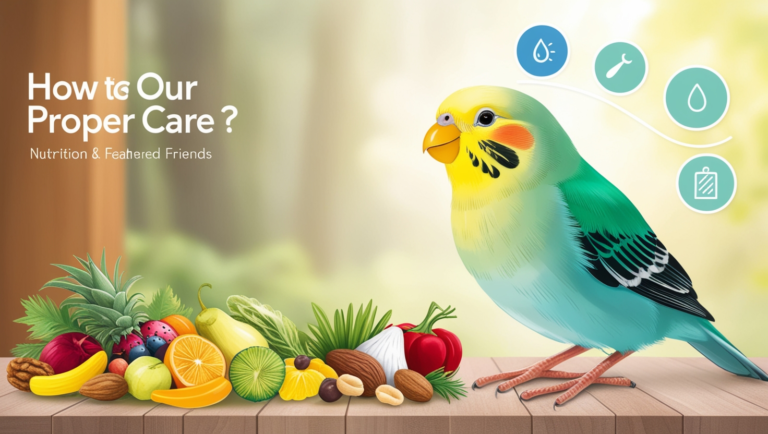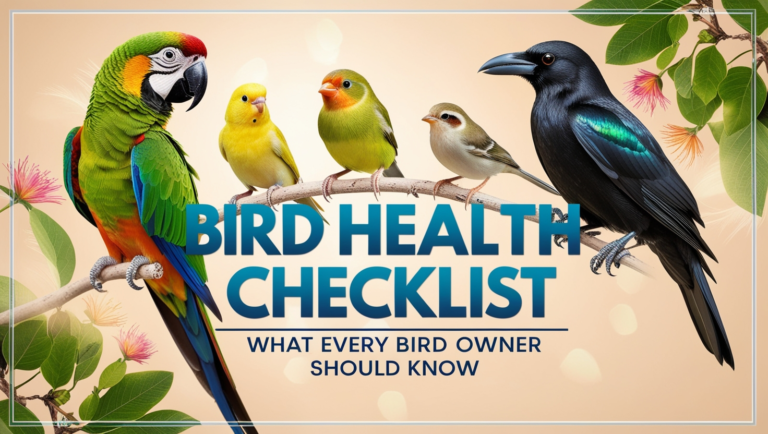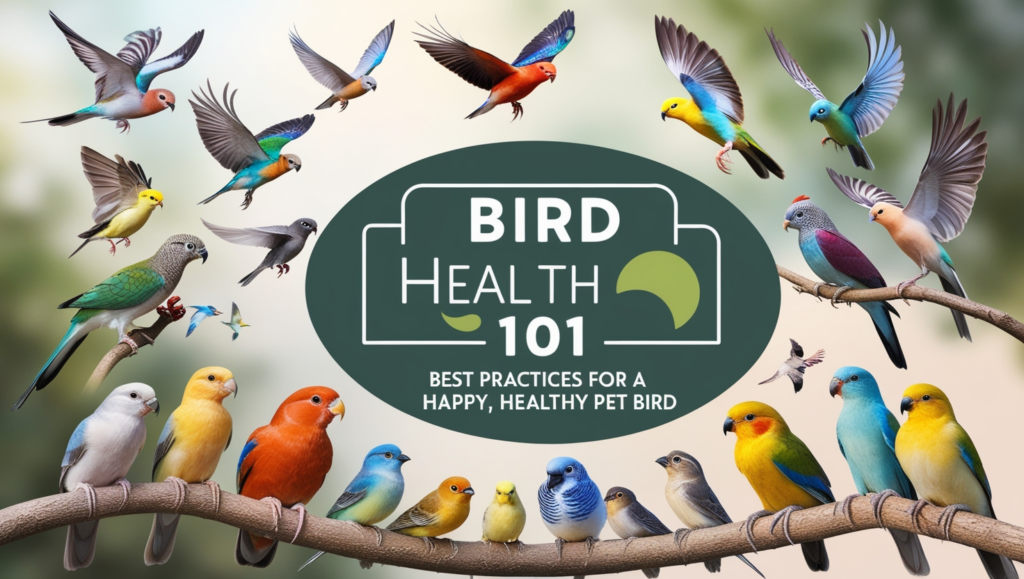
Owning a bird as a pet brings joy, beauty, and lively companionship into your home. However, ensuring your bird remains happy and healthy requires a combination of care, attention, and knowledge. Birds are delicate creatures, and maintaining their well-being involves much more than providing food and a cage. In this guide, we’ll cover essential best practices to help you keep your bird in optimal health, ensuring a long and happy life for your feathered friend.
I. Provide a Balanced and Varied Diet
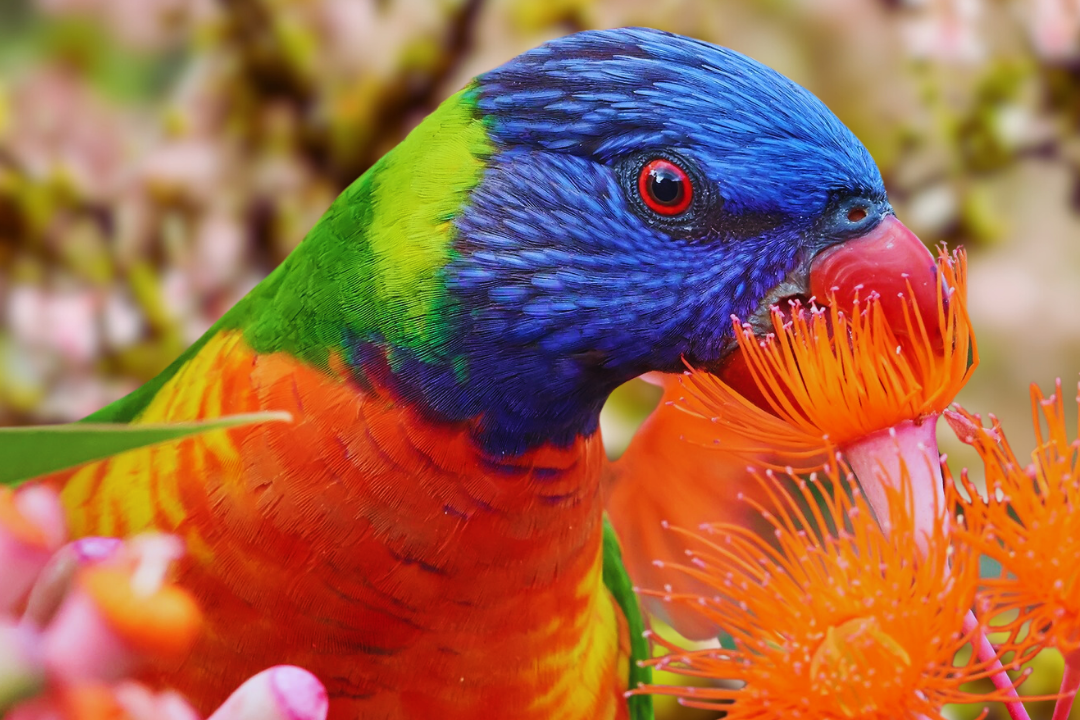
A balanced and varied diet is foundational to your pet bird’s health and well-being. Just like any other pet, birds require a diverse range of nutrients to thrive, and their dietary needs can vary based on their species, age, and health. Ensuring your bird receives the right nutrition can prevent many common health issues and contribute to a longer, happier life. This guide will explore the key components of a healthy diet for birds and offer practical tips to help you provide the best possible nutrition for your feathered friend.
Understanding Your Bird’s Nutritional Needs
Birds have specific nutritional requirements that can differ widely between species. While general guidelines apply, it’s crucial to consider the particular needs of your bird’s species. For example, parrots, finches, and budgerigars each have unique dietary needs. Consult your veterinarian for species-specific advice, but here are some general principles to follow:
- Pellets: A Nutritional Foundation
Pellets are formulated to provide a complete and balanced diet, offering essential vitamins, minerals, and nutrients in every bite. They are often recommended as the main component of your bird’s diet for several reasons:
- Complete Nutrition: High-quality pellets are designed to meet all of your bird’s nutritional needs, reducing the risk of deficiencies.
- Consistency: Unlike seeds, which can be selective and lead to an imbalanced diet, pellets provide consistent nutrition with every meal.
- Reduced Waste: Pellets are less likely to result in selective feeding, where birds pick out their favorite parts of a mixed diet and leave the rest behind.
Tip: Choose pellets specifically formulated for your bird’s species, size, and age. Look for brands that use high-quality ingredients and avoid artificial colors or preservatives.
- Fresh Fruits and Vegetables: Vital Vitamins and Minerals
Fresh fruits and vegetables should complement your bird’s diet, providing a variety of essential vitamins, minerals, and antioxidants. Here’s how to incorporate them into your bird’s daily meals:
- Fruits: Offer a variety of fruits such as apples, bananas, berries, and melons. These provide important vitamins like vitamin A and C. Be sure to remove seeds and pits, which can be harmful.
- Vegetables: Include a range of vegetables such as leafy greens (spinach, kale), carrots, broccoli, and peppers. These offer essential nutrients and fiber. Wash vegetables thoroughly to remove any pesticides or contaminants.
- Preparation: Cut fruits and vegetables into small, manageable pieces to prevent choking and make them easier for your bird to eat.
Tip: Introduce new fruits and vegetables gradually to see which ones your bird prefers. Variety helps prevent boredom and ensures a broad spectrum of nutrients.
- Protein Sources: Essential for Growth and Repair
Certain species of birds require additional protein in their diet for optimal health, particularly during periods of growth, breeding, or molting. Consider adding:
- Cooked Eggs: Scrambled or boiled eggs provide a high-quality source of protein and essential amino acids.
- Cooked Poultry: Small amounts of cooked chicken or turkey can be offered as a protein supplement.
- Legumes: Cooked beans or lentils can also be a good protein source for many birds.
Tip: Avoid offering raw eggs or meat, as these can pose health risks. Ensure all protein sources are cooked thoroughly and cut into small pieces.
- Grains and Nuts: Healthy Fats and Energy
Grains and nuts can provide additional energy and healthy fats, but they should be offered in moderation due to their high caloric content. Consider:
- Whole Grains: Cooked brown rice, quinoa, or oats can be included in your bird’s diet for added nutrients and energy.
- Nuts: Nuts like almonds, walnuts, and hazelnuts provide healthy fats and protein. Offer them in small amounts and chop them into bite-sized pieces.
Tip: Avoid salted or flavored nuts, as excess salt and artificial additives can be harmful to birds.
- Avoid Harmful Foods
Certain foods are toxic to birds and should always be avoided. These include:
- Avocado: Contains persin, which can be toxic to birds.
- Chocolate and Caffeine: Both are harmful and can lead to serious health issues.
- Alcohol: Even small amounts can be dangerous.
- High-Sugar or High-Fat Foods: These can contribute to obesity and other health problems.
Tip: Always research and consult your vet about any new food before offering it to your bird.
Practical Feeding Tips
- Establish a Routine: Feed your bird at the same times each day to create a routine and help maintain regular eating habits.
- Portion Control: Offer appropriate portions to avoid overfeeding or underfeeding. Remove uneaten food to prevent spoilage and contamination.
- Monitor Food Intake: Pay attention to what your bird eats and adjust the diet based on any changes in appetite or health.
- Clean Dishes Regularly: Wash food and water dishes daily to prevent the growth of harmful bacteria and mold.
II. Ensure Clean, Fresh Water
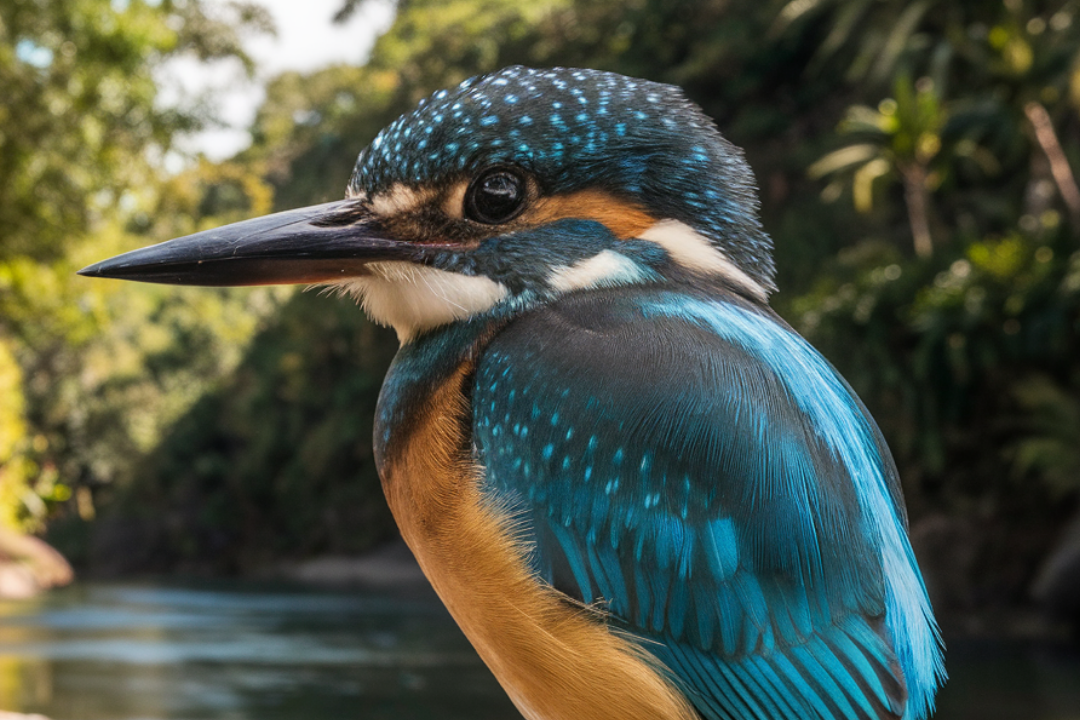
Providing your pet bird with clean, fresh water is one of the most fundamental aspects of bird care. Water is crucial for maintaining hydration, supporting digestion, and ensuring overall health. Birds can be particularly sensitive to changes in their water supply, making it essential to establish and maintain good water hygiene practices. Here’s a comprehensive guide on how to ensure your bird always has access to clean, fresh water.
The Importance of Clean, Fresh Water
1. Hydration
Proper hydration is vital for your bird’s health. Dehydration can lead to severe health problems, including organ failure and even death. Birds need access to fresh water at all times to support their body functions and maintain hydration levels.
2. Digestive Health
Water is essential for digestion. It helps break down food, aids in nutrient absorption, and facilitates the elimination of waste. Without adequate water, birds may suffer from digestive issues, such as constipation or impacted crop.
3. Temperature Regulation
Birds use water to regulate their body temperature. Adequate hydration helps birds maintain a stable body temperature, which is crucial for their overall health and well-being.
Best Practices for Providing Clean Water
1. Daily Water Changes
To ensure your bird always has access to clean water:
- Change Water Daily: Remove and replace the water in your bird’s dish at least once a day. Birds can quickly dirty their water by dipping food, feathers, or droppings into it.
- Use Fresh Water: Always refill the dish with fresh, room-temperature water. Avoid using tap water that has been sitting out, as it can become contaminated.
Tip: If you have multiple birds, consider using larger water containers or multiple dishes to ensure all birds have access to fresh water.
2. Clean Water Dishes Regularly
To prevent the growth of harmful bacteria and algae:
- Wash Dishes Daily: Clean water dishes with hot water and a mild soap or bird-safe cleaner. Scrub the dish thoroughly to remove any residue or build-up.
- Rinse Well: Ensure that all soap or cleaning products are rinsed off completely to avoid harmful residues.
Tip: Avoid using harsh chemicals or strong-smelling cleaners, as these can be harmful to birds.
3. Monitor Water Intake
Pay attention to your bird’s water consumption:
- Check Water Levels: Regularly check the water level to ensure your bird is drinking enough. A sudden decrease in water consumption could indicate health problems.
- Observe Drinking Behavior: Note any changes in your bird’s drinking habits. A bird that drinks excessively or not enough could be a sign of illness or other health issues.
Tip: If you’re unsure whether your bird is drinking enough, consult your veterinarian for guidance.
4. Provide Water in Appropriate Containers
Choose the right type of container for your bird:
- Bird-Safe Water Dishes: Use dishes made from non-toxic materials that are easy to clean and resistant to breakage. Stainless steel or ceramic dishes are good options.
- Avoid Open Dishes: Consider using dishes with covers or those that prevent contamination from droppings and food.
Tip: For larger birds or those with special needs, consider using a water bottle with a metal sipper tube to reduce the chance of contamination.
5. Consider Water Additives Carefully
Sometimes, water additives can be beneficial, but use them cautiously:
- Electrolyte Solutions: In cases of dehydration or illness, electrolyte solutions can help. Consult your veterinarian before adding any supplements to your bird’s water.
- Avoid Unnecessary Additives: Do not add anything to the water without veterinary advice. Some additives can be harmful or alter the water’s composition in undesirable ways.
Tip: Always consult with your veterinarian before introducing any new water additives or supplements.
Troubleshooting Common Water-Related Issues
1. Algae Growth
Algae can form in water dishes if they are not cleaned regularly or if they are exposed to sunlight.
- Solution: Ensure that water dishes are cleaned daily and kept in a shaded area to prevent algae growth. Regularly scrub any algae build-up with a brush.
2. Contamination
Birds can accidentally contaminate their water with food, feathers, or droppings.
- Solution: Use dishes that are easy to clean and consider placing the water dish in a location where it is less likely to become contaminated.
3. Water Quality
Poor water quality can affect your bird’s health.
- Solution: If you’re concerned about the quality of tap water, consider using filtered or bottled water. Always ensure that any water used is free from harmful chemicals or contaminants.
III. Maintain Proper Cage Hygiene
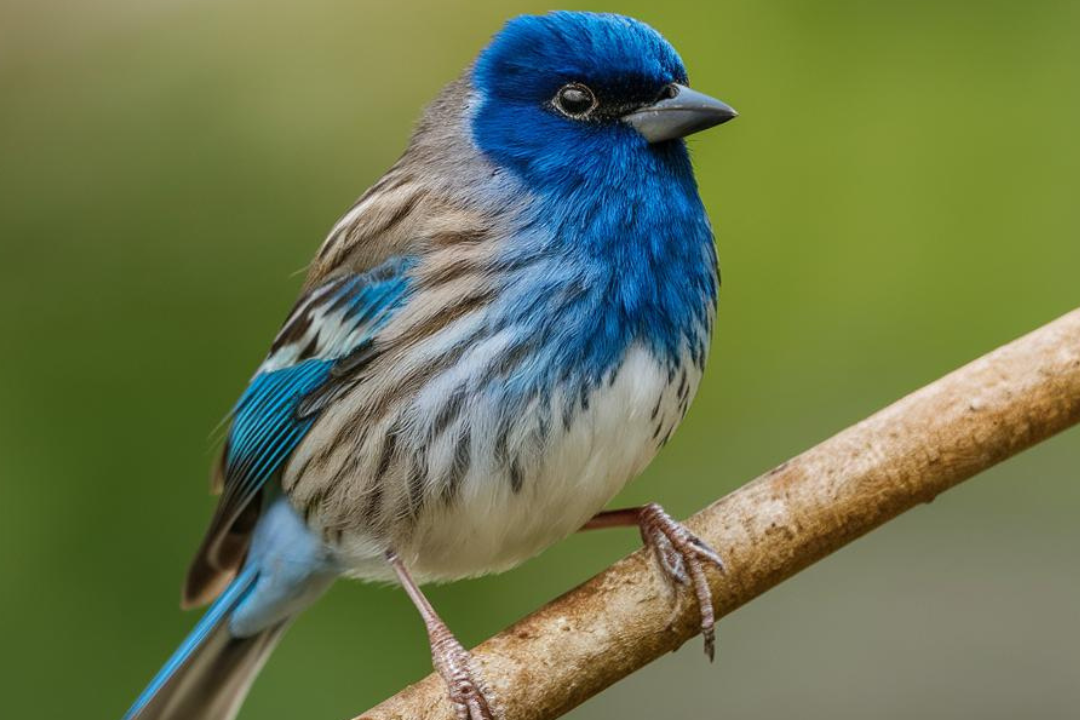
Maintaining proper cage hygiene is crucial for the health and well-being of your pet bird. A clean cage helps prevent the spread of diseases, minimizes the risk of infections, and ensures a comfortable living environment for your feathered friend. This guide outlines essential practices for keeping your bird’s cage hygienic and safe.
The Importance of Cage Hygiene
1. Disease Prevention
A clean cage helps prevent the buildup of harmful bacteria, fungi, and parasites that can cause diseases. Regular cleaning reduces the risk of infections and ensures your bird’s environment is sanitary.
2. Minimizing Odors
Proper hygiene minimizes unpleasant odors that can accumulate from droppings, spilled food, and soiled bedding. A clean cage contributes to a more pleasant living space for both your bird and you.
3. Promoting Comfort
A well-maintained cage provides a comfortable and safe space for your bird to live and thrive. Clean surroundings contribute to your bird’s overall well-being and happiness.
Essential Cage Cleaning Practices
1. Daily Cleaning Tasks
Incorporate these daily cleaning practices into your routine to maintain cage hygiene:
- Change Water Daily: Replace your bird’s water with fresh, clean water every day to prevent contamination and ensure proper hydration.
- Remove Uneaten Food: Take out any uneaten or spoiled food from the cage to prevent mold growth and attract pests.
- Spot Clean: Remove any droppings, spilled food, or other debris from the cage bars, perches, and the bottom of the cage. Use a bird-safe disinfectant or a mixture of water and mild soap for spot cleaning.
Tip: Use disposable gloves when handling soiled materials to maintain hygiene and prevent contamination.
2. Weekly Deep Cleaning
Perform a thorough cleaning of the cage on a weekly basis:
- Disassemble the Cage: Remove all perches, toys, and food dishes. Wash these items separately with hot water and a bird-safe soap or cleaner.
- Clean the Cage Interior: Scrub the cage bars, tray, and bottom with hot water and a bird-safe disinfectant. Pay special attention to areas where droppings and food residue accumulate.
- Wash Bedding: Replace or wash the bedding material. If using paper liners, replace them with fresh ones; if using other types of bedding, ensure they are cleaned or replaced regularly.
Tip: Consider using a non-toxic disinfectant that is safe for birds and follow the manufacturer’s instructions for use.
3. Monthly Maintenance
Perform additional maintenance tasks each month to ensure long-term hygiene:
- Check for Wear and Tear: Inspect the cage for any signs of damage or wear. Repair or replace any broken parts to ensure your bird’s safety.
- Clean Hard-to-Reach Areas: Use a brush or vacuum to clean any hard-to-reach areas where dust and debris may accumulate.
Tip: Consider rotating toys and perches monthly to give them a thorough cleaning and to provide your bird with new stimuli.
Best Practices for Cage Hygiene
1. Use Bird-Safe Cleaning Products
Choose cleaning products that are safe for birds:
- Avoid Harsh Chemicals: Steer clear of cleaning agents with strong odors or harsh chemicals, such as bleach or ammonia. These can be harmful to birds.
- Opt for Natural Cleaners: Use bird-safe disinfectants or natural cleaners, such as vinegar or baking soda, which are less likely to irritate your bird’s respiratory system.
Tip: Always rinse thoroughly after using any cleaning products to ensure no residues remain that could harm your bird.
2. Maintain Proper Ventilation
Ensure the cage area is well-ventilated:
- Ventilate the Room: Regularly ventilate the room where the cage is located to reduce the buildup of dust and odors.
- Avoid Overcrowding: Do not overcrowd the cage with too many toys or accessories, which can make cleaning more difficult and limit airflow.
Tip: Use air purifiers or dehumidifiers if necessary to maintain a clean environment and reduce airborne contaminants.
3. Regular Health Checks
Incorporate health checks into your cleaning routine:
- Inspect for Parasites: Look for signs of parasites or infections, such as unusual droppings, feather loss, or changes in behavior.
- Consult a Veterinarian: If you notice any health issues or abnormalities, consult your avian veterinarian for advice and treatment.
Tip: Regularly monitor your bird’s behavior and appearance for any signs of illness that may require prompt attention.
V. Ensure a Safe, Stress-Free Environment
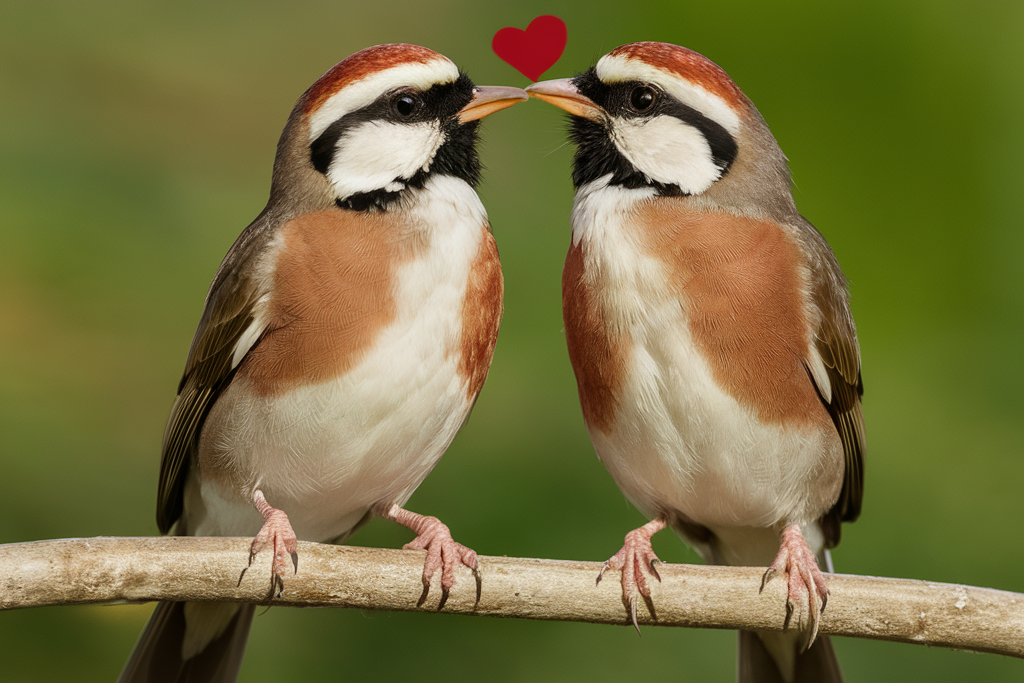
Creating a safe and stress-free environment for your pet bird is essential for maintaining its overall health and well-being. Birds are highly sensitive to their surroundings, and a stressful environment can lead to a range of health issues, including behavioral problems and physical illness. In this guide, we’ll explore how to create a secure, comfortable, and stress-free habitat for your feathered friend.
The Importance of a Safe, Stress-Free Environment
1. Reduced Stress Levels
Stress can negatively impact your bird’s health, leading to issues such as feather plucking, decreased immune function, and even depression. A safe and comfortable environment helps minimize stress and promotes a healthy, happy bird.
2. Enhanced Well-Being
A stress-free environment contributes to your bird’s emotional and physical well-being. It allows your bird to feel secure and engaged, which is vital for its overall health and longevity.
3. Preventing Behavioral Issues
Stressful conditions can result in behavioral problems such as aggression, excessive screaming, or self-mutilation. A calm environment helps prevent these issues and encourages positive behavior.
Creating a Safe Environment
1. Proper Cage Placement
The placement of your bird’s cage plays a crucial role in its safety and comfort:
- Avoid Drafts: Place the cage away from drafts, such as open windows or air conditioning vents, which can lead to illness.
- Keep Away from Hazardous Areas: Ensure the cage is not in areas with potential hazards, such as near hot stoves, chimneys, or electrical outlets.
- Height and Accessibility: Place the cage at a comfortable height where your bird can feel secure. It should be easily accessible for cleaning and interaction but not in a high-traffic area where it might feel threatened.
Tip: Consider using cage stands or play gyms to provide additional play and exercise areas outside of the cage.
2. Provide a Secure and Comfortable Cage
A secure cage is essential for your bird’s safety and comfort:
- Choose the Right Size: The cage should be spacious enough for your bird to move around comfortably, stretch its wings, and play. Ensure the bars are spaced appropriately to prevent escape or injury.
- Include Perches and Toys: Provide a variety of perches and toys to keep your bird entertained and active. Ensure perches are made of safe materials and are appropriately sized for your bird.
- Add Safe Bedding: Line the bottom of the cage with bird-safe bedding or newspaper to keep the area clean and comfortable.
Tip: Regularly inspect the cage for any signs of wear or damage and replace any broken or unsafe items promptly.
3. Create a Calm and Quiet Space
Minimizing noise and disturbances is key to creating a stress-free environment:
- Limit Loud Noises: Avoid placing the cage near loud appliances, televisions, or speakers. Birds can be startled by sudden or loud noises, which can lead to stress.
- Provide a Quiet Area for Rest: Ensure your bird has a quiet, dark area to sleep without interruptions. A consistent sleep schedule helps maintain your bird’s health and reduces stress.
Tip: Consider using a cage cover or placing the cage in a quiet room during nighttime to simulate a natural environment and promote restful sleep.
4. Ensure Social Interaction
Birds are social animals and thrive on interaction with their human caregivers:
- Daily Interaction: Spend time interacting with your bird through talking, training, or playing. Regular interaction helps build trust and reduces loneliness.
- Enrichment and Bonding: Engage your bird with toys, puzzles, and foraging activities to keep it mentally stimulated and engaged. Positive reinforcement during training helps strengthen your bond.
Tip: Be mindful of your bird’s body language and respect its space. Avoid overwhelming it with too much interaction or handling.
5. Prevent Exposure to Toxic Substances
Ensure your bird’s environment is free from toxic substances:
- Avoid Harmful Chemicals: Keep cleaning products, pesticides, and other chemicals out of your bird’s reach. Use bird-safe cleaners and avoid strong-smelling substances.
- No Smoking: Do not smoke near your bird. Tobacco smoke and other pollutants can harm your bird’s respiratory system.
Tip: Regularly ventilate the room and maintain a clean environment to reduce the risk of airborne toxins.
Monitoring and Adapting the Environment
1. Observe Behavior
Regularly observe your bird’s behavior and environment:
- Watch for Signs of Stress: Changes in behavior, such as feather plucking, aggression, or lethargy, can indicate stress or discomfort. Address any issues promptly.
- Adjust the Environment: Make adjustments to the cage placement, noise levels, or interaction as needed to improve your bird’s comfort and well-being.
Tip: Keep a journal of your bird’s behavior and any environmental changes to track patterns and identify potential stressors.
2. Consult with a Veterinarian
Regular veterinary check-ups can help identify and address any health or environmental issues:
- Health Assessments: Schedule regular vet visits to monitor your bird’s health and receive advice on maintaining a safe environment.
- Behavioral Advice: Discuss any behavioral concerns with your vet, who can provide guidance on managing stress and creating a positive environment.
Tip: Consult your vet before making significant changes to your bird’s environment or diet to ensure it aligns with your bird’s health needs.
VI. Support Proper Sleep Habits
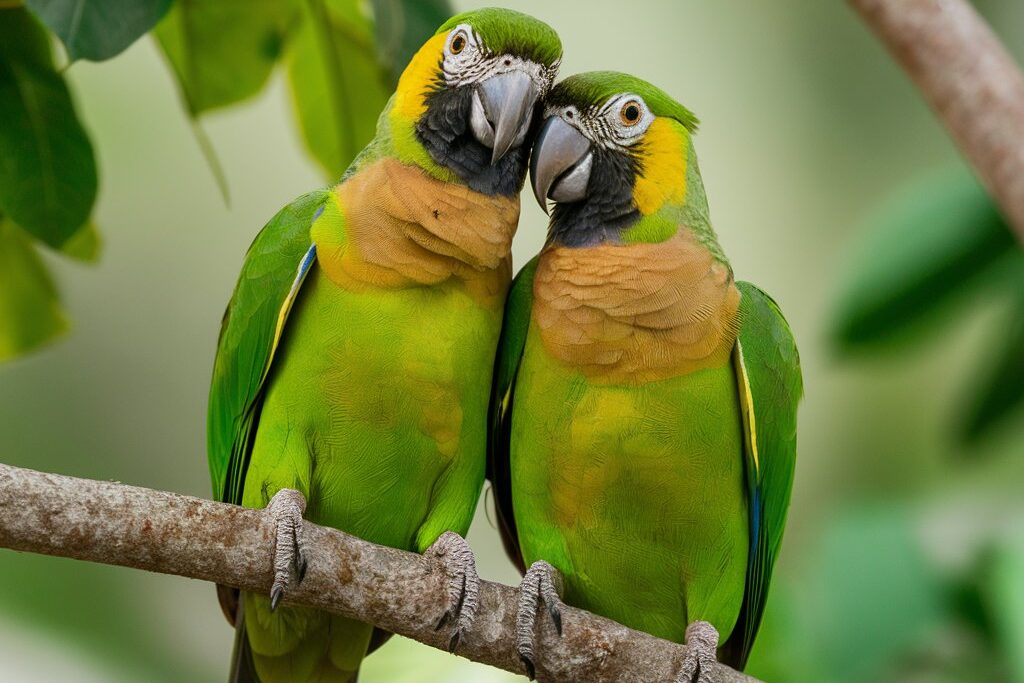
Proper sleep is crucial for your pet bird’s overall health and well-being. Birds, like humans, need quality rest to maintain their physical health, emotional stability, and behavioral balance. Establishing and supporting proper sleep habits will help ensure your bird remains healthy and happy. This guide provides essential tips for creating an optimal sleeping environment and fostering good sleep habits for your feathered friend.
The Importance of Proper Sleep for Birds
1. Physical Health
Sleep is vital for your bird’s physical health. During sleep, the body repairs itself, and immune functions are supported. Adequate rest helps maintain a healthy metabolism, aids in growth, and supports recovery from illness or injury.
2. Emotional Well-Being
A well-rested bird is more likely to exhibit positive behaviors and a stable mood. Lack of sleep can lead to irritability, aggression, or withdrawal. Consistent, quality sleep contributes to a bird’s overall emotional balance and reduces stress.
3. Behavioral Balance
Proper sleep helps regulate your bird’s daily rhythms and behavior. Birds that get enough sleep are less likely to engage in negative behaviors such as excessive vocalization or self-mutilation, which can occur as a result of stress or fatigue.
Creating an Optimal Sleep Environment
1. Provide a Quiet, Dark Sleeping Area
A quiet and dark environment is essential for restful sleep:
- Darkness: Birds need a dark environment to mimic their natural sleep patterns. Use a cage cover or place the cage in a dimly lit room during nighttime to create a conducive sleeping environment.
- Quiet: Position the cage away from noisy areas, such as the kitchen or living room, where sounds could disrupt your bird’s sleep.
Tip: A consistent sleep schedule helps reinforce your bird’s natural sleep-wake cycle. Aim for 10-12 hours of darkness each night.
2. Comfortable Cage Setup
Ensure the cage is set up to promote comfort and rest:
- Perch Placement: Place perches at different levels to allow your bird to choose a comfortable spot for sleeping. Ensure perches are made of materials that provide a natural grip and avoid perches that are too small or uncomfortable.
- Bedding: Use bird-safe bedding at the bottom of the cage to absorb droppings and provide a clean resting area. Avoid bedding with strong scents or chemicals.
Tip: Consider providing a cozy, covered area within the cage where your bird can retreat for additional comfort and security.
3. Consistent Sleep Routine
Maintain a consistent sleep routine to support your bird’s circadian rhythms:
- Regular Sleep Schedule: Set a regular bedtime and wake-up time for your bird. Avoid sudden changes in the sleep schedule, as this can disrupt your bird’s sleep patterns.
- Pre-Sleep Routine: Establish a calming pre-sleep routine, such as dimming the lights and reducing activity, to signal to your bird that it’s time to wind down.
Tip: Avoid stimulating activities, such as play or training, close to bedtime to help your bird transition smoothly to sleep.
4. Monitor and Address Sleep Disruptions
Be observant of any factors that might disrupt your bird’s sleep:
- Check for Discomfort: Ensure the cage is free from drafts, sharp edges, or other potential discomforts that could interfere with your bird’s sleep.
- Observe Behavior: Pay attention to any changes in your bird’s sleep patterns or behavior. Difficulty sleeping or frequent waking could indicate underlying health issues or environmental stressors.
Tip: Consult with your veterinarian if you notice persistent sleep issues or behavioral changes related to sleep.
5. Support Natural Sleep Patterns
Encourage your bird’s natural sleep behaviors:
- Mimic Natural Conditions: Try to replicate the natural light and dark cycles of your bird’s native environment. Avoid artificial lighting that remains on during the night.
- Respect Sleep Time: Once your bird is asleep, minimize disturbances such as loud noises or handling.
Tip: Use a timer for lights if necessary to maintain a consistent light/dark cycle, especially if your bird’s cage is in a room with fluctuating light conditions.
Troubleshooting Sleep-Related Issues
1. Restlessness or Difficulty Sleeping
If your bird shows signs of restlessness or difficulty sleeping:
- Evaluate the Environment: Check for environmental factors such as noise, light, or temperature that may be affecting sleep quality. Make necessary adjustments to create a more conducive sleep environment.
- Consult a Vet: Persistent sleep issues could be a sign of health problems. Consult your veterinarian to rule out any medical conditions that might be affecting your bird’s sleep.
Tip: Keep a log of your bird’s sleep patterns and any observed issues to help your veterinarian diagnose and address potential problems.
2. Behavioral Changes
Changes in behavior, such as increased aggression or lethargy, might be related to sleep disruptions:
- Review Routine: Ensure that your bird’s sleep routine is consistent and that there are no disruptions or stressors affecting its rest.
- Seek Professional Advice: If behavioral changes persist, seek advice from a veterinarian or an avian behavior specialist.
Tip: Behavioral issues related to sleep should be addressed promptly to prevent further complications or stress.
VII. Schedule Regular Veterinary Check-Ups
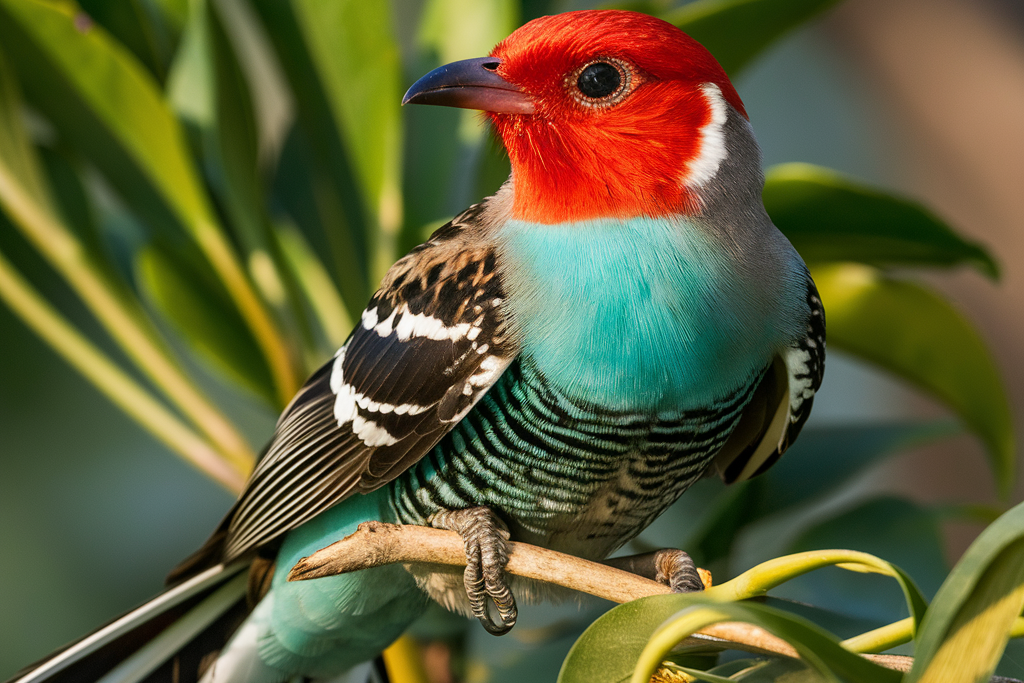
Regular veterinary check-ups are essential for maintaining your pet bird’s health and well-being. Unlike dogs and cats, birds are skilled at hiding signs of illness, so routine vet visits are crucial for early detection and prevention of potential health issues. This guide will help you understand the importance of regular check-ups, what to expect during a visit, and how to prepare for a successful appointment.
The Importance of Regular Veterinary Check-Ups
1. Early Detection of Health Issues
Birds often mask symptoms of illness, making it difficult for owners to detect problems early. Regular vet visits allow for early detection of issues that might not yet be visible, such as internal parasites, nutritional deficiencies, or metabolic disorders.
2. Preventive Care
Routine check-ups enable your vet to provide preventive care, including vaccinations and advice on diet, behavior, and environmental factors. Preventive measures are key to avoiding common diseases and maintaining your bird’s overall health.
3. Monitoring Health Changes
Regular visits help track changes in your bird’s health over time. This ongoing monitoring allows for adjustments to care plans and treatment strategies as needed, ensuring your bird stays healthy throughout its life.
What to Expect During a Veterinary Check-Up
1. Initial Assessment
The vet will begin with a thorough assessment of your bird’s overall condition:
- Physical Examination: The vet will examine your bird’s feathers, skin, eyes, beak, and legs. They will also listen to the heart and lungs, check the abdomen, and assess weight and body condition.
- Behavioral Observations: The vet may observe your bird’s behavior and temperament to identify any signs of stress, aggression, or lethargy.
Tip: Bring a written record of any behavioral changes, dietary adjustments, or health concerns you’ve noticed since the last visit.
2. Diagnostic Tests
Depending on the findings from the initial assessment, your vet may recommend diagnostic tests:
- Blood Work: Routine blood tests can provide valuable information about your bird’s organ function, electrolyte levels, and overall health.
- Fecal Examination: A fecal test can detect parasites, bacterial infections, and other gastrointestinal issues.
- X-rays or Ultrasound: Imaging may be used to examine internal organs and structures if there are concerns about underlying conditions.
Tip: Discuss any specific health concerns or symptoms with your vet to determine if additional tests are necessary.
3. Preventive Care Recommendations
Your vet will provide recommendations to maintain your bird’s health:
- Vaccinations: If applicable, your vet will administer or update any necessary vaccinations to protect against common avian diseases.
- Diet and Nutrition: The vet will review your bird’s diet and offer advice on balanced nutrition and any supplements needed.
- Environmental and Behavioral Advice: Your vet may provide guidance on creating a healthy environment, including cage setup, enrichment, and social interaction.
Tip: Follow the vet’s recommendations and ask for clarification if needed to ensure you understand how to implement their advice.
Preparing for Your Bird’s Veterinary Visit
1. Gather Information
Before the appointment, prepare the following information:
- Health History: Document any recent changes in behavior, diet, or health. Note any specific symptoms or concerns you’ve observed.
- Current Diet: Bring details about your bird’s current diet, including types of food and any supplements.
Tip: Keeping a health journal can help you track changes and provide valuable information to your vet.
2. Transporting Your Bird
Transport your bird safely and comfortably:
- Use a Secure Carrier: Place your bird in a well-ventilated, secure carrier to ensure its safety during transport. Line the carrier with a soft, absorbent material.
- Minimize Stress: Keep the carrier covered with a light cloth to reduce stress and prevent distractions during the journey.
Tip: Arrive at the vet’s office a few minutes early to allow your bird to acclimate to the environment and reduce stress.
Post-Visit Care
1. Follow-Up Instructions
After the appointment, follow any instructions provided by your vet:
- Medication: Administer any prescribed medications as directed and complete the full course.
- Diet Adjustments: Implement any dietary changes or recommendations provided by your vet.
- Follow-Up Appointments: Schedule any necessary follow-up visits or additional tests as recommended.
Tip: Keep track of any changes in your bird’s health or behavior after the visit and report them to your vet if needed.
2. Ongoing Monitoring
Continue to monitor your bird’s health between check-ups:
- Regular Observations: Watch for any changes in behavior, appetite, or appearance. Maintain a consistent routine and environment to support your bird’s health.
- Emergency Care: Contact your vet immediately if you notice any signs of illness or distress between scheduled visits.
Tip: Familiarize yourself with basic first aid for birds and keep emergency contact information for your vet handy.
VIII. Monitor for Signs of Illness
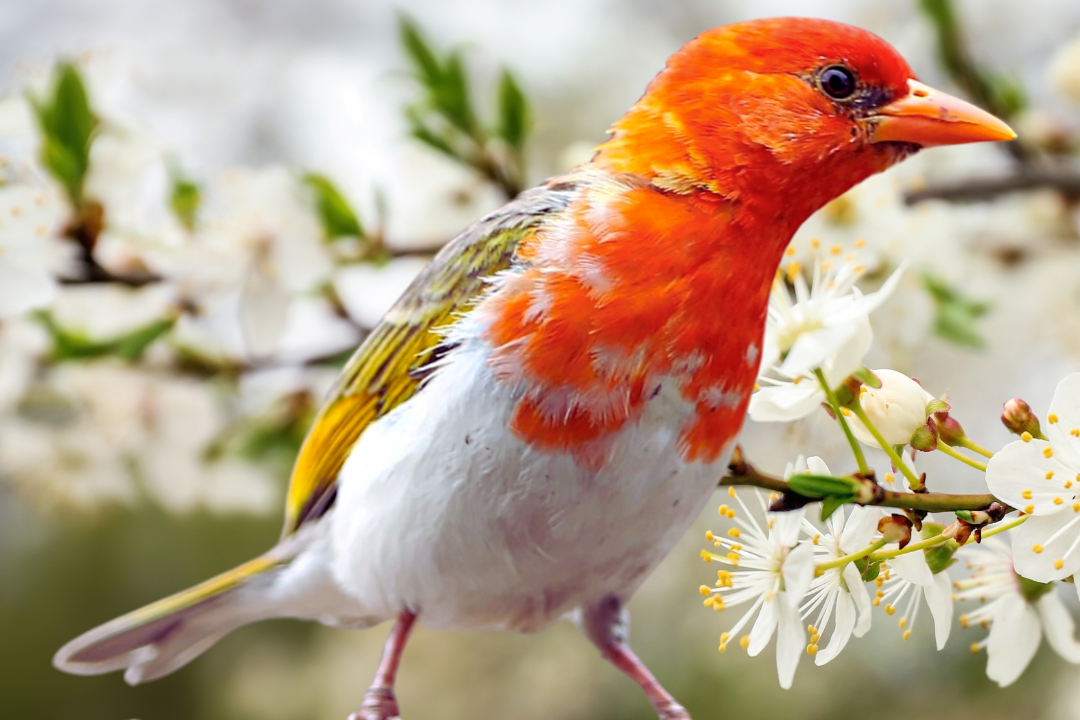
Monitoring for signs of illness is a critical aspect of responsible bird care. Birds can be adept at hiding symptoms of illness, making it essential for owners to be vigilant and proactive. Early detection of health issues can lead to more effective treatment and a better prognosis for your feathered friend. This guide provides a comprehensive overview of how to monitor your bird for signs of illness and what steps to take if you notice any symptoms.
Why Monitoring for Illness is Important
1. Early Detection
Birds often mask signs of illness to avoid appearing vulnerable. Regular observation helps in detecting health problems before they become severe, allowing for timely intervention and treatment.
2. Preventive Care
Identifying and addressing minor health issues early can prevent them from escalating into more serious conditions. This proactive approach contributes to your bird’s overall well-being and longevity.
3. Improved Treatment Outcomes
Early detection of health issues typically results in more effective treatment. Addressing symptoms promptly can lead to a quicker recovery and reduce the risk of complications.
Key Signs of Illness to Monitor
1. Changes in Appetite and Drinking Habits
- Decreased Appetite: If your bird is eating less than usual or refusing food, it may indicate a health issue.
- Increased Thirst: Drinking more water than normal can be a sign of metabolic or kidney problems.
Tip: Monitor your bird’s food and water intake daily and note any changes in consumption patterns.
2. Alterations in Droppings
- Consistency: Watch for changes in the consistency, color, or frequency of droppings. Diarrhea, unusually dry droppings, or changes in color can signal digestive issues or infections.
- Presence of Blood: Any sign of blood in the droppings is a cause for concern and should be reported to your vet immediately.
Tip: Keep a record of your bird’s droppings to help your vet diagnose potential issues.
3. Feather and Skin Changes
- Feather Condition: Look for signs of feather plucking, abnormal molting, or changes in feather texture and color.
- Skin Issues: Check for any changes in skin color, lesions, or excessive itching that could indicate parasites or skin infections.
Tip: Regularly inspect your bird’s feathers and skin during grooming or handling.
4. Behavioral Changes
- Activity Level: A decrease in activity or a sudden change in behavior can be indicative of illness. Watch for lethargy, excessive sleeping, or a lack of interest in usual activities.
- Aggression or Withdrawal: Changes in temperament, such as increased aggression or withdrawal, may signal discomfort or pain.
Tip: Note any changes in your bird’s behavior and consider potential causes, such as environmental changes or stress.
5. Respiratory Symptoms
- Breathing Difficulties: Observe for signs of labored breathing, wheezing, or unusual vocalizations that could indicate respiratory issues.
- Nasal Discharge: Watch for nasal discharge or swelling around the beak and eyes, which may be signs of respiratory infections.
Tip: Ensure your bird’s living environment is free from dust, smoke, and other irritants that could affect respiratory health.
6. Eye and Beak Changes
- Eye Condition: Monitor for any changes in eye color, cloudiness, or discharge that may indicate infections or systemic issues.
- Beak Condition: Check for changes in beak color, texture, or growth patterns, which could be signs of nutritional deficiencies or disease.
Tip: Gently examine your bird’s eyes and beak during handling to spot any abnormalities.
Steps to Take When You Notice Symptoms
1. Document the Symptoms
Keep a detailed record of any symptoms you observe, including their onset, frequency, and any other relevant details. This information will be valuable for your veterinarian in diagnosing the issue.
Tip: Use a journal or app to track changes in your bird’s health, behavior, and environment.
2. Consult Your Veterinarian
If you notice any signs of illness, contact your avian veterinarian promptly. Share your observations and follow their recommendations for diagnosis and treatment.
Tip: Don’t wait for symptoms to worsen before seeking veterinary care. Early consultation can improve treatment outcomes.
3. Follow Treatment and Care Instructions
Adhere to any treatment plans or care instructions provided by your veterinarian. This may include administering medications, making dietary changes, or adjusting your bird’s environment.
Tip: Ask your vet for clarification on any treatment procedures and ensure you understand how to properly follow their advice.
Preventive Measures and Ongoing Care
1. Maintain a Healthy Environment
Ensure your bird’s living environment is clean, safe, and free from hazards. Provide a balanced diet, fresh water, and appropriate enrichment to support overall health.
2. Regular Check-Ups
Schedule regular veterinary check-ups to monitor your bird’s health and catch any potential issues early. Routine visits help maintain your bird’s well-being and provide an opportunity for preventive care.
Tip: Use regular check-ups as an opportunity to discuss any concerns or changes you’ve noticed with your vet.
3. Educate Yourself
Stay informed about common bird diseases and health issues. Understanding the signs and symptoms of various conditions will help you provide better care and respond quickly to potential problems.
Tip: Join bird care forums, read reputable avian health literature, and consult with your vet for ongoing education.

